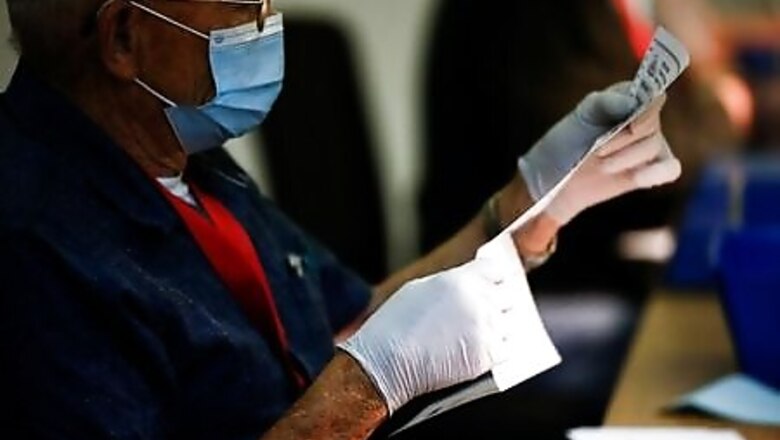
views
President Donald Trump and some Republican allies have repeatedly asserted, without evidence, that a surge in mail-in voting amid the coronavirus pandemic will lead to massive fraud in November’s election.
Experts say election fraud is vanishingly rare in the United States, however, where nearly one in four voters already cast a mail-in or absentee ballot in 2016. Here is a look at the security measures states have in place to ensure ballot integrity.
HOW RARE IS VOTER FRAUD?
Many researchers have focused on impersonation fraud, in which a voter pretends to be someone else at the polls, because such claims have been used by states to justify stricter voter ID laws.
Justin Levitt, a law professor at Loyola Law School who tracks such cases, identified only 31 impersonation incidents between 2000 and 2014 across the country, out of more than 1 billion ballots cast.
Five states – Colorado, Hawaii, Oregon, Utah and Washington – hold their elections primarily by mail and have documented almost no cases of cheating. Oregon, for instance, has sent out more than 100 million mail ballots since 2000 and reported around a dozen cases of proven fraud.
HOW SECURE IS MAIL-IN VOTING?
There are multiple layers of security in place for mail-in ballots, which are also known as “absentee” ballots in many states.
All 50 states and the District of Columbia require a voter to sign a statement or affidavit when voting by mail, and some also require personal information such as birth dates, addresses and driver’s license numbers. The signature can then be compared with the voter’s signature on file, usually from a voter registration form.
Eight states also require a witness signature, while three states require notarization, according to the National Conference of State Legislatures (NCSL). Alabama has perhaps the strictest rules, directing voters to submit copies of their IDs as well as signatures from either a notary or two witnesses.
The return envelopes are typically opened by a different group of workers from those who scan the ballots. Outside observers, often appointed by a political party or campaign, are allowed to monitor post-election procedures, such as ballot counting. All but four states – North Carolina, Kansas, Maine and Florida – explicitly permit partisan observers to watch some post-election processes, according to the NCSL.
In addition, ballots vary widely in appearance – not just from state to state but also from county to county and even from town to town, because most voters are not just making a choice for U.S. president but also for local offices. Any ballot that does not match the proper form will be rejected by election officials.
Many jurisdictions use bar codes on ballot envelopes that can be used to help with ballot processing, according to the Brennan Center for Justice at New York University, a public policy institute. The bar codes also allow voters to track their ballots to ensure they have been received.
WHAT ABOUT VOTING TWICE?
Trump caused a stir last week when he encouraged his supporters in North Carolina, a key battleground state, to vote by mail and then show up on Election Day to cast another ballot in person. Voting twice in the same election is a crime in the United States.
Like other forms of voter fraud, double voting appears to be exceptionally rare, according to multiple studies.
Election officials rejected 8,247 absentee ballots in the 2016 presidential election because the voter had also cast a ballot in person, according to figures collected by the U.S. Election Assistance Commission, although the vast majority appear not to have been intentional attempts at fraud.
All states have measures in place to prevent voters from casting two ballots, experts say.
In North Carolina, for instance, electronic poll books track who has already voted. On Election Day at 6:30 a.m., all voters whose absentee ballots have already arrived are removed from the poll books, and any who attempt to vote in person will not be allowed to do so, according to a statement that election officials released following Trump’s comments.
Any absentee ballots received on Election Day are not counted until after the polls close, to ensure no double voting, officials said.
Pennsylvania and Florida, also crucial battlegrounds, have similar electronic systems that tell poll workers whether a voter has requested a mail ballot, and whether that ballot has already been received.
“With modern technology, we know within six seconds when our databases are updated,” said Mark Earley, supervisor of elections in Leon County, Florida.
Earley said his office saw a handful of attempted “double votes” each election – usually from elderly voters who have forgotten they cast mail ballots.
Disclaimer: This post has been auto-published from an agency feed without any modifications to the text and has not been reviewed by an editor


















Comments
0 comment